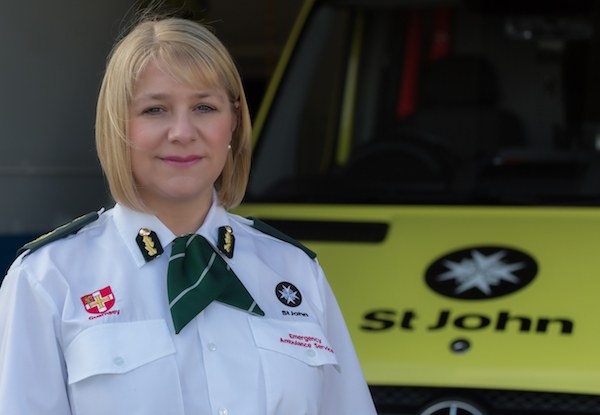
As someone who must remain calm, when the rest of us may be panicking, 999 call taker Matthew Tostevin has proven his worth.
The St John Emergency Ambulance Service said it has presented him with a "recognition of performance award" for his work at the Joint Emergency Services Control Centre, where he is one of a team of people who answer 999 calls for all of the emergency services in Guernsey.
As a new member of JESCC staff Mr Tostevin has already been described as someone who "rapidly aspired to efficiently and effectively deal with a number of challenging emergency calls for patients in cardiac arrest" including on several occasions, whilst during a 999 call he "swiftly and successfully" instructed bystanders to commence CPR giving step-by-step advice to callers.
Mr Tostevin said “I am immensely proud to receive this award from St John. It is recognition that as part of a team, we all work together get help to people in their time of need. What I enjoy about working in JESCC is it is so varied due to covering all three emergency services and Coastguard. It is both challenging and rewarding and you never know what you are going to be dealing with next.”
Guernsey’s Chief Ambulance Officer Ali Marquis said “Matthew has made a real difference in improving the chances of a patient being successfully resuscitated and in some case achieving a return of circulation. His calm and reassuring manner and his ability to give clear CPR advice when it is needed deserves recognition. On behalf on the St John Emergency Ambulance Service I would like to thank him for his continuing efforts.”

Pictured: Ali Marquis, Guernsey's Chief Ambulance Officer
St John Ambulance said early CPR is one of the main factors in the chain of survival, which can improve the chances of a patient surviving a cardiac arrest.
When a member of the public calls for an ambulance for a casualty who is not breathing they will be asked to send someone for a defibrillator (AED) and commence CPR until the ambulance or a trained first responder arrives on scene.
Comments
Comments on this story express the views of the commentator only, not Bailiwick Publishing. We are unable to guarantee the accuracy of any of those comments.